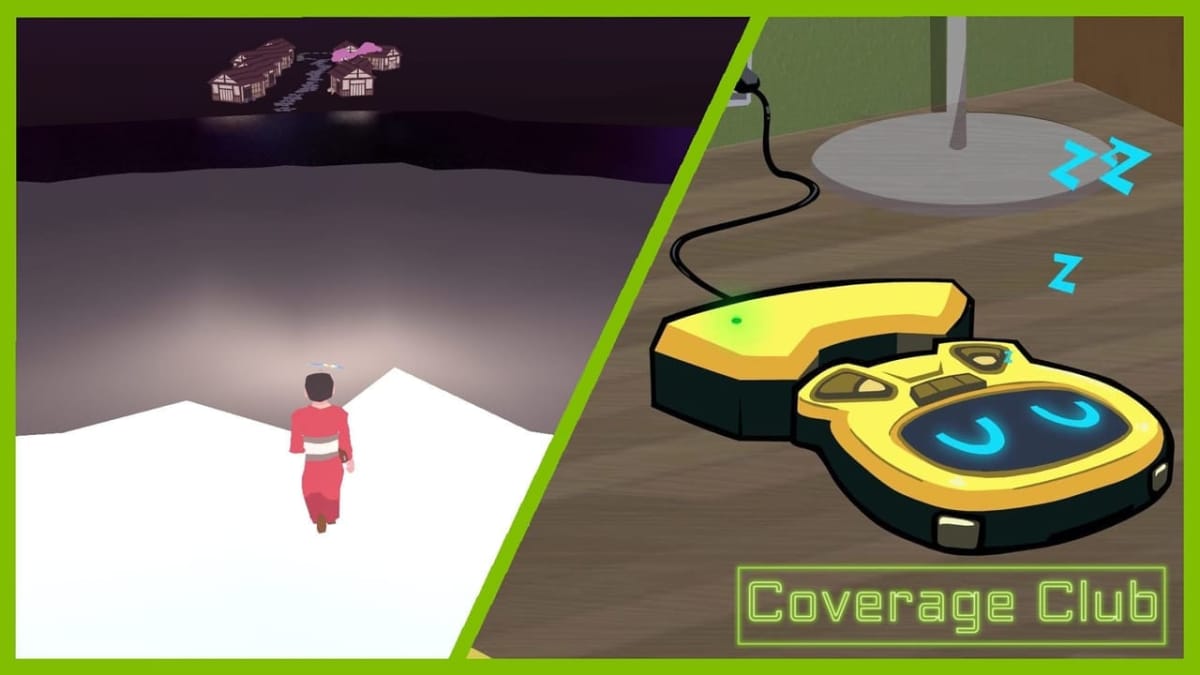This week on Coverage Club, we've got a doubleheader of indie games, both played and covered by our own William Worrall. One is a stylish video game musical, the other is a stealth game about a killer vacuum cleaner. The only thing they have in common is that they're worth some love, and that's why we're here. Check out our thoughts on Yi and The Thousand Moons (by David Su) and Roombo: First Blood (by Samurai Punk).
Yi and The Thousand Moons Hits The Right Notes
Sometimes you don't want a complicated game. Sometimes it's more enjoyable to sit down with a micro-experience that offers more in terms of originality than 10 triple-A blockbusters combined. It is usually with these sorts of micro-experiences that we find the most experimental content out there and this is the case with Yi and The Thousand Moons. It's important that a few things are understood about Yi and The Thousand Moons going forward. It is an art-house, operatic musical experience which is very short. The whole experience is over in around 15 minutes. Understandably this sort of interactive tale isn't necessarily for everyone, but the low price prevents it from being too egregious.
Yi and The Thousand Moons is a sort of interactive fantasy opera about a young girl called Yi, an archer from a small village. One day, she's tasked with destroying the 7 moons by the gods, bringing catastrophe to her village. To make up for her error she seeks for a way to right the wrong she has committed, and save her village. There's not much else to say about the tale without giving out spoilers. The focus here is on the music, rather than on the story or gameplay. Each verse of the song plays during each chapter of the story, timed to go together. Say one scene has the characters singing about their destroyed world, a timer appears before you can begin so that the constant beat in the background flows with the lines being sung.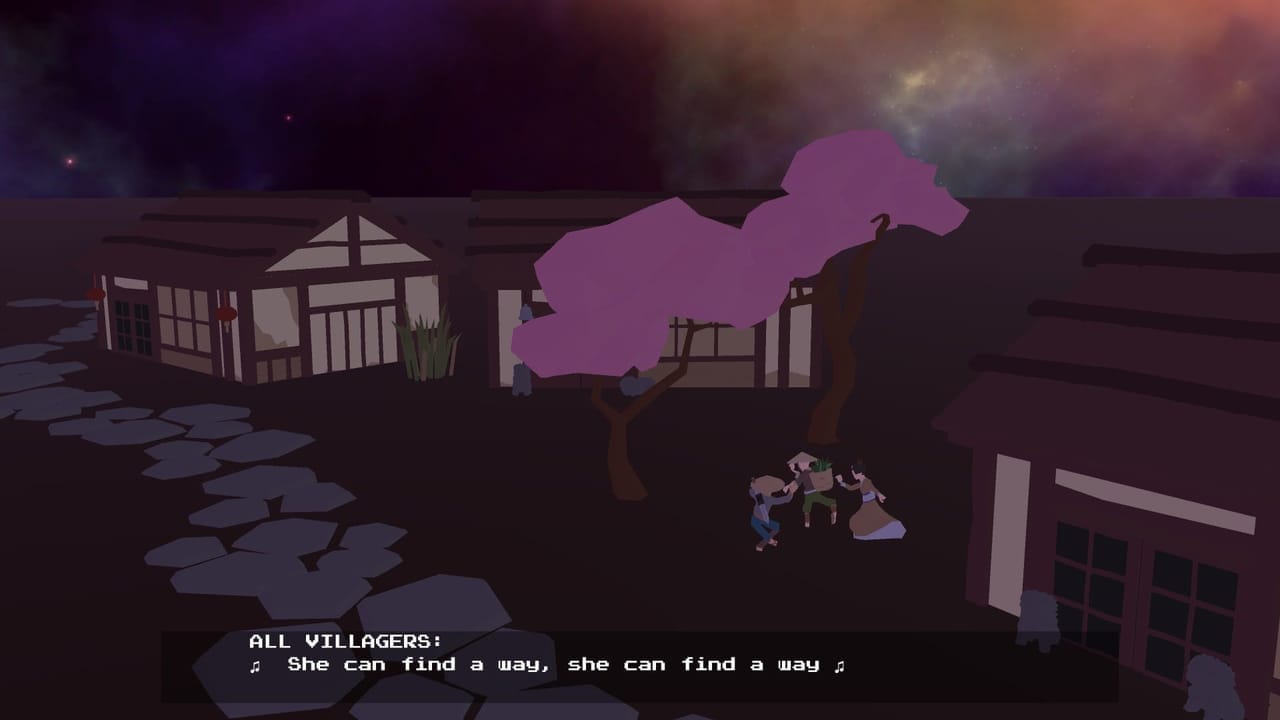
Yi and The Thousand Moons | A Musical Masterpiece
The singing in Yi and The Thousand Moons is quite spectacular, from all singers involved. Yi herself is the biggest standout, delivering a wonderfully harmonious performance throughout. It's sort of surprising that the soundtrack doesn't come with the game considering its musical focus. The other singers also do a good job, harmonizing well enough together but falling slightly shorter during solo performances. Overall the music is the best part of the experience, thankfully. Since the game bills itself as a musical narrative, it would have been a shame to have poor music.Talking about the gameplay feels almost entirely pointless. What little there is involves walking around and occasionally shooting an arrow at an obvious target. I've heard these obstacles described as puzzles, but they don't really feel like it. I think that trying to sell the game as having puzzles is a bit disingenuous. What it really is, is an interesting narrative musical with great singing and a distinct art style. While the graphics and gameplay aren't very strong, they're not the focus. The game is important because you'd never see it's like from a major studio. Even if it may not be for everyone, Yi and The Thousand Moons is brilliant, short and sweet.
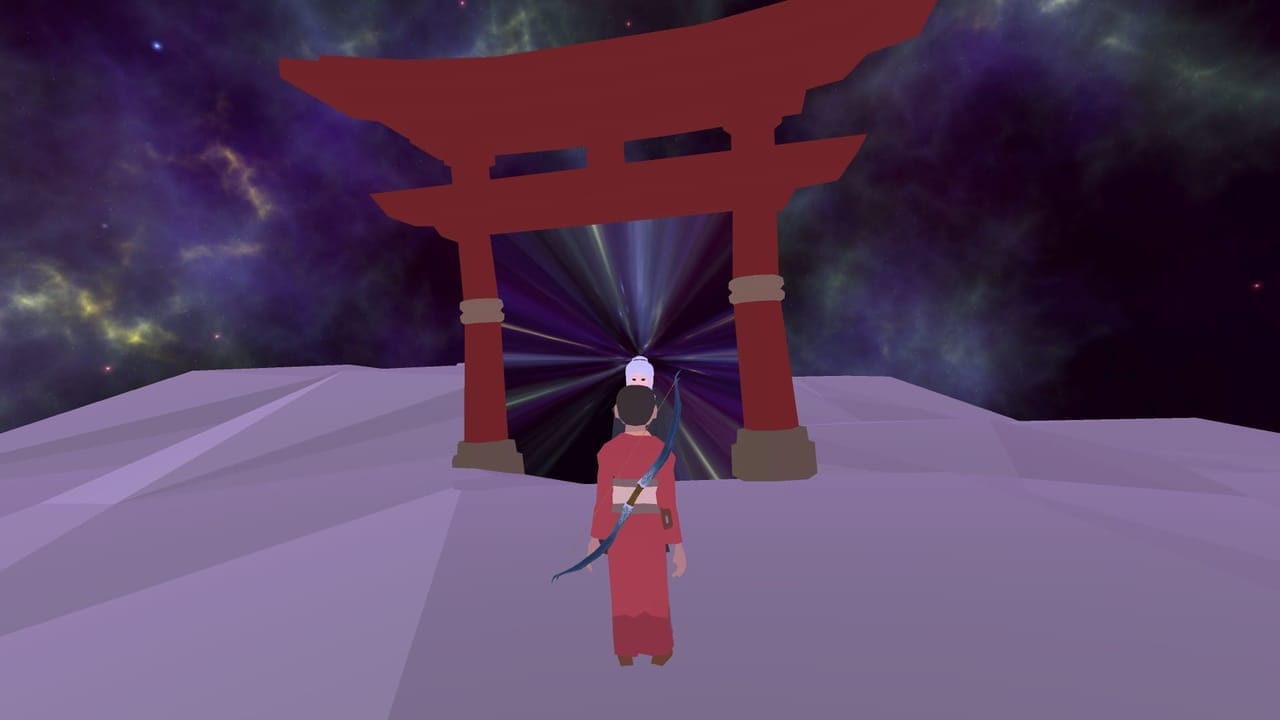
TechRaptor covered Yi and The Thousand Moons on PC via Steam with a copy provided by the developer.
Roombo: First Blood Is Completely Bonkers And Completely Loveable
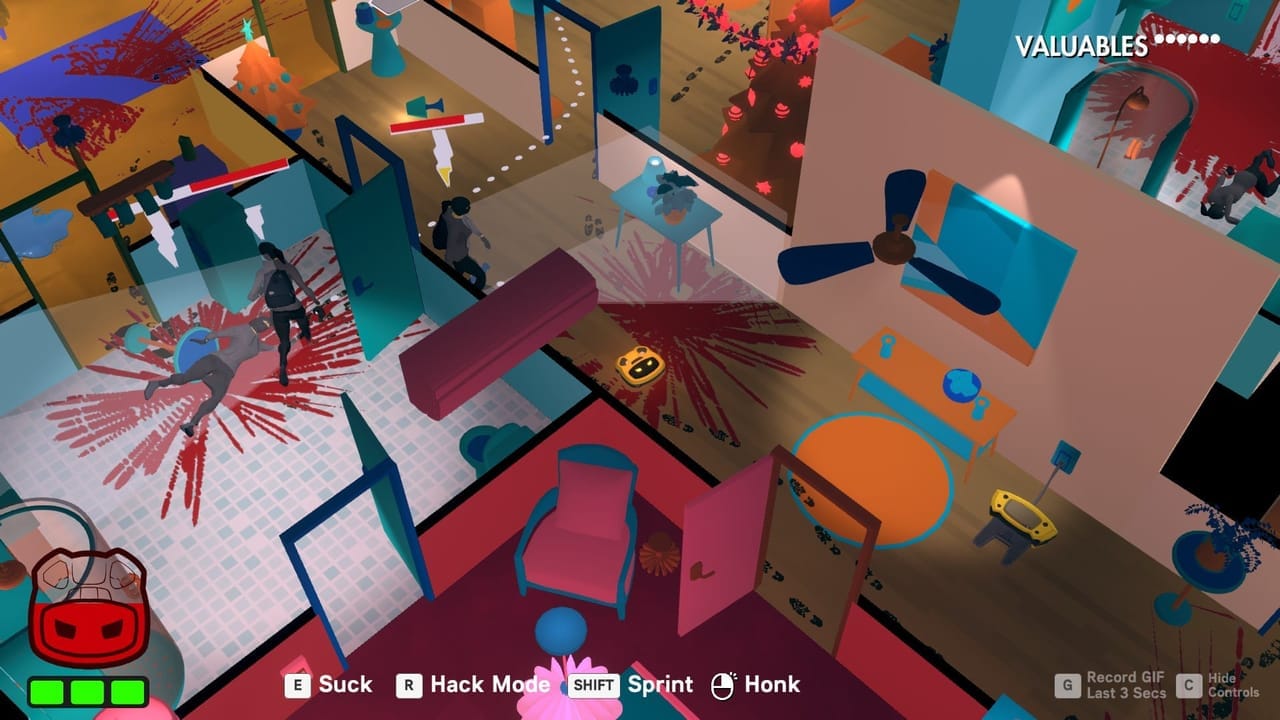
Sometimes you don't want a concept to make sense. Experimentation used to be everywhere back during the 5th console generation. These days, it's exclusively the realm of the indie developer. Samurai Punk are nothing if they're not experimental. Screencheat, their first game, was an FPS in which all players are invisible meaning that the only way to win is to look at the other player's screens to figure out where they are. Their next game, The American Dream was a huge parody of American gun culture, which basically saw the player use guns to do everyday tasks such as opening a beer or feeding the dog. You can most effectively describe Samurai Punks' latest effort as 'a gory Home Alone starring a vacuuming robot'. As you can probably tell Samurai Punks haven't lost their experimental edge with Roombo: First Blood.
Roombo as a concept sounds almost like a joke. Approaching a publisher with this sort of idea would almost certainly get the developers laughed out of the room. That would have been a shame too because Roombo is a hell of a lot of fun. The main thrust of the gameplay involves sneaking around and setting off traps. Being a tiny vacuum cleaning robot means that you're not really properly equipped for the day-to-day business of murdering intruders. Overcoming this limitation is pretty easy since your house is full of the largest array of faulty, wireless-enabled, electronics any house has ever had.
Your robot has a limited radius around itself inside of which it can hack different electronic devices. The challenge comes from making sure you're close enough to activate the traps, but not so close that they turn around and beat the crap out of you. Weapons at your disposal include faults control panels which explode, ceiling fans which fall on enemies and sprinklers which spill pools of water to make them trip over. You can also honk your horn, which attracts enemies to your location and gives you the chance to trap them.
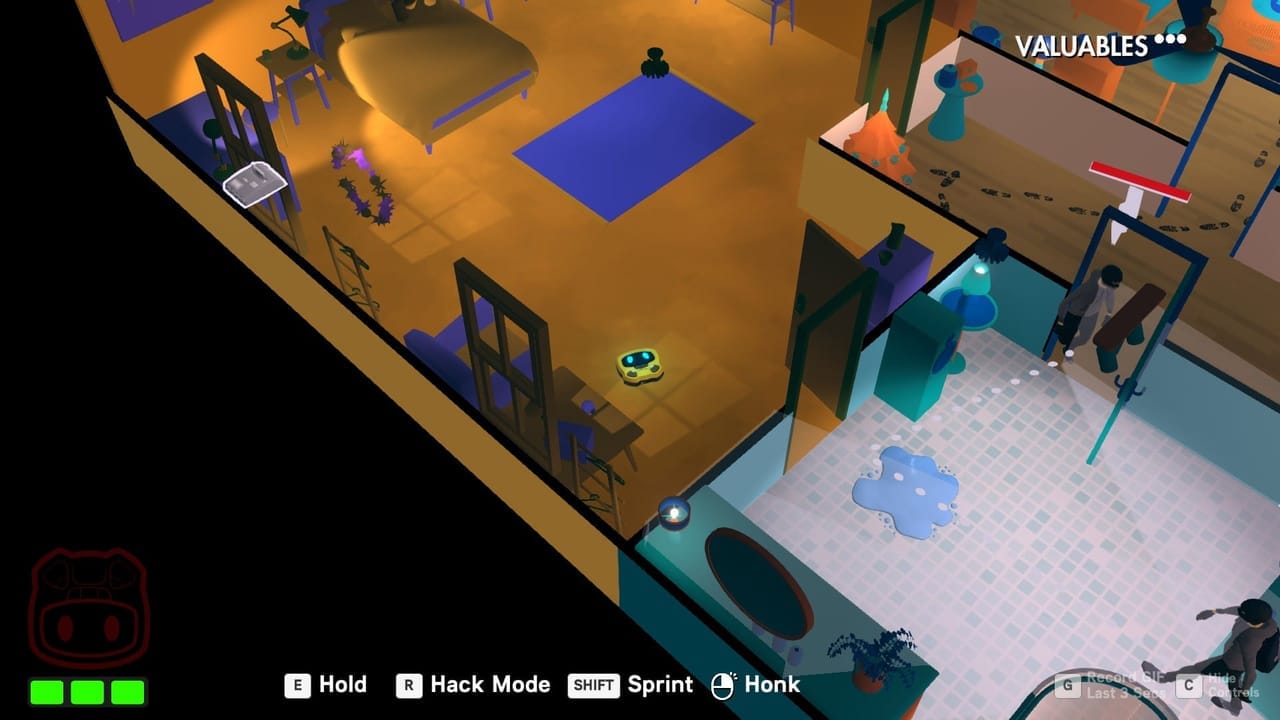
Hitting an enemy with a trap causes them to lose health, as well as spraying blood everywhere. Get all enemies to zero health before they escape with the goodies and you beat the stage. Traps aren't the only weapon which Roombo gives the player to deal with burglars. Your ace-in-the-hole is your ability to ram enemies and do damage. As you go around the house sucking up blood and muddy footprints your robot gets angrier. Fully charging your robot's anger levels results in a one-shot ramming ability which can finish off weak opponents or take a strong one down a peg or two.
If there is any flaw with Roombo it is that it just feels maybe a tad too experimental. Over the 9 or so stages of the game, the map never changes, simply adding another bad guy and valuable to the pile for you to deal with. One gameplay mode and one map do not make the game super replayable. Sure you can go after a high score by besting enemies quickly and cleaning the house up afterward. Other than that, there's not much to keep you coming back. It's a true shame as well because Roombo feels like it could have been infinitely more substantial. A cleaning mode which tasked you with cleaning up after a botched burglary or some different maps and enemy types could have made it into something worth coming back to time and time again. As it stands Roombo is fun but is over far too quickly to make any lasting sort of impression. Here's hoping that Samurai Punks don't give up on it yet.
TechRaptor covered Roombo: First Blood on PC via Steam with a copy provided by the developer.
Have a tip, or want to point out something we missed? Leave a Comment or e-mail us at tips@techraptor.net
